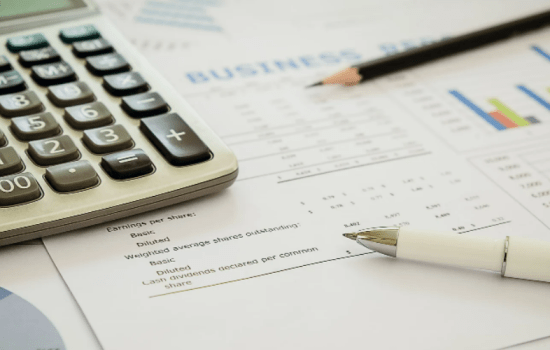Is renting a home complicated? Not at all. The most prevalent business property issue is whether to rent or buy. Many UK businesses choose to rent rather than purchase commercial property, so you may be wondering how to get started. This guide on renting a commercial property will educate you on renting commercial property efficiently.
What is the definition of a commercial rental property?

Commercial property, also known as commercial real estate, investment property, or income property, refers to real estate (buildings or land) designed to profit, either via capital gains or rental income. The following are examples of commercial property: offices, hotels, malls, retail stores, multifamily housing projects, agricultural land, warehouses, and garages.
Many states look at a home with more than a certain number of commercial units for financing and property development tax reasons. A commercial building is a structure used for business, like an office building, a warehouse, or a store. A commercial building may mix purposes such as offices on floors 2–10 with shops on the ground floor in metropolitan areas.
Renting a Commercial Property – 5 Things to Think About Before Doing So
Renting business premises may be complex. Yes, it’s similar to a residential property. There’s rent to pay, general operating expenses to consider, and terms in your lease agreement to protect you and your landlord. Your duties as a renter are defined by law, but the details will be determined by what is stated in your lease.
A business lease or agreement, on the other hand, may often have over 50 pages of complex clauses, many of which may have an impact on your bottom line. As a result, you must read it and comprehend what it implies. Don’t assume that just because it’s a formal document.
It’s thrilling, but it’s a significant step, and you need to make sure you’re well protected. Even huge organisations that have already relocated will seek expert counsel.
Start with lots of time

Once you’ve found a suitable house, it might take months to agree on a lease. Make sure you’re clear about the date you’d want to move in and if there’s any wiggle room. Both sides will need to safeguard their interests, and there will most certainly be some back-and-forth. A straightforward lease will most likely take around a month.
Is the structure a suitable match for your company?
It is critical to consider what rights you will be allowed under the lease. Tenants are often liable for service costs, business rates, utilities, and rent. If you must fund this expense, look into the building’s efficiency rating and if the landlord has adequately met their MEES duties.
Changes to the facility may be required, impacting the operating expenses. The lease specifies what conditions apply to the facility, such as community space or assigned parking, loading bay or delivery limits.
The proper usage is critical. Every commercial lease specifies an allowed use for the duration of the lease. Naturally, a more excellent range of permissible services is ideal. So, before you sign up, you should verify with the planning authorities to ensure that the building’s authorised user does not conflict with your planned use. You may need to apply for a ‘change of use permit if it does.
What is the ‘term,’ and can it be extended?
The lease’s duration is crucial. The leasing rate may seem appealing, but it may not be prudent to be saddled with a lengthy lease when your intentions are uncertain. A pause might consider. Similarly, if you have invested money on an expensive fit-out, you may wish to have the ‘option’ to prolong your lease.
Finally, ensure that the lease does not limit your rights under the 1954 Landlord and Tenant Act. You face the danger of not being able to renew your lease when it expires.
Rent negotiation, examination of conditions and requirements

When it comes to negotiating the rent, your primary goal will be to rent the space for the lowest feasible price. Almost often, commercial space is charged per square foot. Landlords are understandably hesitant to provide discounts, but you may be able to negotiate several months of ‘free rent.’
Although rent-free periods are most often seen at the beginning of a lease (for example, during a fit-out phase or as an incentive), they may occur throughout the lease term. There may be a VAT registered benefit for the landlord, and it may aid in circumstances where landlords are required to declare a specified price per square foot to their investor/bank.
The devil is in the details when it comes to renting review agreements. Rent may only be raised once every 12 months by law, and the landlord must always inform the renter of any increase.
However, your lease may contain rent review terms, and you should ensure that you understand how the review will affect the rent. After a lease, the renter must restore the property premises to their original state.
This procedure, known as ‘dilapidations,’ is usually spelt out in the lease and will most likely include removing fixtures and fixing any damage. A lease would often provide provisions for ‘fair wear and tear,’ and as a result, renters will be free of responsibility.
When will I be able to serve notice?
A ‘break clause,’ which is a condition in your lease that permits you to leave your lease early, is usually agreed upon by the tenant and landlord at the start. A break clause is frequently subject to requirements that must be satisfied before invoking it.
These must be followed appropriately. Otherwise, you will be required to continue with the lease. Check these criteria carefully and mark any important dates/deadlines in your calendar to appropriately utilise the break if/when you choose to.
Conclusion
Owning and renting a commercial property for your business has advantages and disadvantages. Because the two cases are dissimilar, you must perform a thorough study before proceeding. What should you consider while renting a business property if you decide not to buy?







